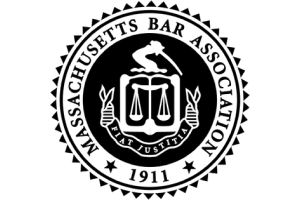Defense Lawyer
Domestic Violence Help: Boston Restraining Order Attorney and Criminal Defense Attorney
Joe Serpa of Serpa Law Office is a Boston restraining order attorney and a Boston criminal defense attorney representing clients all over eastern and central Massachusetts. In Massachusetts’ district courts, Boston Municipal Court and Superior Court, Massachusetts restraining orders are called 209A abuse prevention orders. Colloquially in Massachusetts courts, the terms “restraining order” and “abuse prevention order” are interchangeable.
A strong and skilled Massachusetts criminal defense attorney is your best advocate if you are a Plaintiff in a Massachusetts restraining order or 209A abuse prevention order seeking protection from abuse. Likewise, a Boston trial lawyer with deep experience in defending restraining orders in Massachusetts has the very skills you need to present your case to obtain protection from abuse. At Serpa Law Office, we understand the seriousness and urgency of the need for protection from abuse under a restraining order in Massachusetts.
A Massachusetts restraining order, or an “abuse prevention order,” is a court order intended to protect individuals from abuse by a family member, romantic partner (former or current) or household member. These cases often are related to pending criminal matters by the same abuser and with the same victim. The courtroom skills needed to represent you in getting protection from abuse with a Massachusetts restraining order are the very same skills and experience that make a strong advocate at the trial of a criminal case.
Boston Criminal Defense attorney Joe Serpa has deep experience in presenting evidence, rebutting defenses and ensuring that your 209A abuse prevention, meaning your Massachusetts retraining order, is extended in a Massachusetts trial court.
Obtaining a Restraining Order in Massachusetts: A Guide for Victims of Abuse
In Massachusetts, a 209A order, also known as an abuse prevention order or restraining order, is a civil court order that can help protect victims of abuse from further harm. If you are experiencing abuse from a family or household member, a former dating partner, or someone you have a child with, you may be eligible to file for a 209A order.
What is Abuse?
Under Massachusetts restraining order law, abuse is defined as any of the following:
- Physical abuse, such as hitting, kicking, or shoving
- Emotional abuse, such as name-calling, threats, or intimidation
- Sexual abuse
- Stalking
- Threats of harm to you or your children
Who is Eligible to File for a 209A Restraining Order?
You can file for a 209A abuse prevention order if the respondent is:
- A current or former spouse or domestic partner
- A parent of your child
- Someone you have dated or had a sexual relationship with
- A relative, such as a parent, child, grandparent, sibling, aunt, or uncle
- A roommate
How to File for a 209A Restraining Order
To file for a 209A abuse prevention order, you can go to the clerk’s office of any trial court in Massachusetts. The clerk will provide you with a petition form, which you will need to fill out. The petition will ask you to provide information about yourself, the respondent, and the abuse that you have experienced.
Once you have completed the petition, you will need to file it with the court clerk and pay a filing fee. The court will then schedule a hearing, at which you will have the opportunity to present your evidence to the judge.
Evidence to Support Your 209A Restraining Order Case
In order to obtain a 209A abuse prevention order in Massachusetts, you will need to present evidence to the judge that there is a risk of abuse. Evidence of abuse generally includes past verbal or physical abuse, threats, isolation from friends or family and similar evidence. This evidence can be shown using:
- Witness testimony from people who have seen or heard the abuse
- Police reports
- Medical records
- Photographs or videos of the abuse
- Text messages or emails from the respondent
The more evidence you can provide, the stronger your retraining order case will be.
What the Order Can Do
If the judge grants your request for a 209A order, the respondent will be ordered to:
- Stay away from you and your children
- Not contact you
- Not come to your home or workplace
The order may also include other provisions, such as ordering the respondent to surrender their firearms, pay support and refrain from cancelling necessary utilities in your home.
Violations of the Order
If the respondent violates the 209A restraining order, they can be arrested and charged with the crime of violating a 209A abuse prevention order. Often, harassment, stalking or more domestic violence occur during abuse prevention order violations. It is critical to report any violations of the order to the police immediately.
Here are some additional things to keep in mind:
- You can file for a 209A order even if you do not press charges against the respondent.
- You can represent yourself in court, but it is often helpful to have an attorney represent you.
- There is no shame in seeking help if you are experiencing abuse. You are not alone.
Serpa Law Office’s criminal lawyer Joe Serpa is a deeply skilled courtroom advocate with over two decade’s experience in applying for and defending Massachusetts 209A restraining orders. Please call us at (627) 936-0201 to discuss your rights to protection from abuse.












